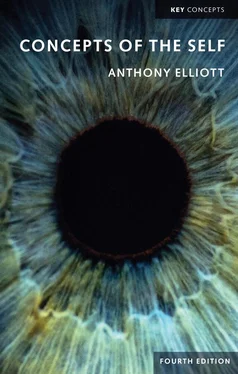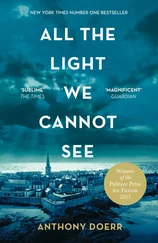All these basic themes concerning changes affecting the self can, as I say, be inferred from the vignette of Ronda’s hi-tech morning routine. There is little doubt that Ronda can be said to live a very privileged life, but there are aspects of her self-experience as described above that are increasingly prevalent and significant for people throughout the world – certainly in the expensive cities of the West. But, increasingly, such personal and social changes also have globalizing consequences. As I try to demonstrate in this book, concepts of the self have a key role to play in the production of everyday life as well as a central place in the social sciences. Concepts of the Self is thus an attempt to make various social, cultural, political and psychological aspects of the self in our changing world intelligible to a wide readership. As we will see throughout the book, concepts of the self have been studied by philosophers and sociologists, by psychoanalysts and cultural theorists. Almost all intellectual evaluations of the self draw from, as well as feed back into, our everyday common-sense understandings of the self. This continual interchange between everyday and intellectual understandings of the self is a key theme of the book.
Increasingly, many people today reflect on their sense of self in terms of their private life – particularly as regards friends, family, intimacy and sexuality. In the contemporary world, selfhood is often experienced as a private affair – as a matter of personal choice, design or project, as a defining aspect of inner desires and dreams. Certainly, in our consumer-driven culture in these early days of the twenty-first century, identity is private and privatizing; everywhere, identity is sold as the means for personal happiness and freedom. From the Nike culture of just-do-it to Apple’s culture of innovation and injunction to ‘think differently’, selfhood is advertised, televised and talked about as the principal means for both joining and enjoying the modern world. Many of the social theories of identity that I examine in this book critically interrogate what might be termed this privatization of the self. To think about selfhood critically is to think beyond the illusions of a purely private world, supposedly unaffected or cut off from the wider social world. For we are all, no matter where we grew up or what successes or otherwise we might have achieved in our lives, exposed to cultures and structures in a profound and ongoing sense. And nowhere more so than when we think we are alone, when we think we are ‘away’ from the world, when we think we act on the basis of our own ‘private’ or unique sense of self. Yet this is not, as it may at first seem, a completely cynical view of the self. Some of the social theories that we will look at in this book do indeed analyse the riddles of self primarily in terms of wider social forces, such as long-term historical processes or social structures. But other theorists of self take perhaps a more complex view, one that critically interrogates the whole relationship between private and public life. The personal life of the self, from this angle, is embedded in powerful unconscious forces, which are in turn deeply rooted in the ways of social life.
In still another way, all social theories of the self turn on issues of control, capabilities and capacities. This is a more complex point, and the debate around it has involved some difficult terminology – but I think the essence of the issue can be easily summarized. Many sociologists talk about the self primarily in terms of the experience of agency – the degree of active involvement individuals have in shaping their personal and cultural experience. In everyday life, we routinely engage in social practices – checking email, posting status updates or taking the dog for an evening walk – in which, for the most part, we express agency in what we do. Self-management, self-shaping, self-stylization: this is just how we give structure to our identities. As directors of our own lives, we draw upon emotional frames of memory and desire, as well as wider cultural and social resources, in fashioning the self. Expressions of personal agency – whether of writing a letter or uttering the words ‘I love you’ – are not something that happens through our actions alone (however much we sometimes think this is so). For practices of the self can also be experienced as forces impinging upon us – through the design of other people, the impact of cultural conventions and social practices, or the force of social processes and political institutions. Society, then, might be said to discipline and regulate the self, so that our deepest feelings about ourselves, as well as our beliefs about our identities, are shaped to their roots by broader social forces and cultural sensibilities. We may, for example, go to the gym fairly regularly in order to try to attain some ideal body shape (and, by implication, an ideal self), and we may do so because this really matters to us and it is experienced as a personal decision or choice. But in the social theories of self that we will examine in this book, there are always other puzzling social forces at work. There are always cultural or commercial factors influencing the self – for example, omnipresent media delivering never-ending images of ideal body-types as well as the selling of strategies to achieve such ‘perfect bodies’.
This issue of the agency of the self is certainly a confounding puzzle, and one that often divides many of the social thinkers whom we will examine in this book. In attempting to understand the lives of individuals, and of the role that society and culture plays in their lives, should we emphasize the practical knowledge of people? If so, to what extent? But what if ‘practical knowledge’ of the self is shaped to its roots by the power of the social bond? At the heart of these questions is an intriguing division that has arisen in the social sciences over the self-shaping of creative individuals, on the one hand, and the social regulation or control of selfhood, on the other. The self has come to be viewed by some social analysts and cultural critics as an upshot of cultural constraint or social exclusion, an approach that, as we will see, focuses on the status of social forces and institutional dynamics. For other critics, the self can only be adequately understood by grasping the creativity of action, focusing in particular on personal agency and autonomy. The concept of the reflective, reasoning self has been central to many schools of thought in the social sciences, and yet an emphasis on human agency varies considerably depending on whether we are discussing sociological, psychoanalytic, poststructuralist, feminist or postmodern approaches. Sociological theories, for example, tend to emphasize how our sense of self is shaped by institutions or cultural forms in the larger society, how we build up notions of the self and other selves as social constructions, and how concepts of the self play a central role in the constitution and reproduction of social networks. Psychoanalytic theories, by contrast, put the emphasis on the organization of our internal worlds, on the emotional conflicts of identity and on the power of the individual to create, maintain and transform relations between the self and others. Concepts of the self emerging from these traditions of thought – that is, sociology and psychoanalysis – have very different ways of conceptualizing how individuals cope with the burdens of self in their day-to-day lives. Sociologists and psychoanalytic critics deal with this issue, as I shall discuss in the chapters that follow, by prioritizing either social forces or individuals in conceptualizing the self.
The relation between identity and society is therefore fundamental to thinking about the self. But there are also other themes of key significance in approaching concepts of the self. Just as social theory divides over prioritizing either social or individual experience in the constitution of the self, so too issues over unity and fragmentation, continuity and difference, rationality and passion, gender and sexuality, come strongly into focus. In the psychoanalytic reading of self and personal identity, for example, individual strivings, desires and actions are grasped as radically divided, torn between that part of the mind that is conscious, rational and reflexive, and the unconscious motivations that lurk within us, but of which we are only dimly aware. Postmodern theory shifts these conflicts of identity up a gear, arguing for the multiplication of narratives of self as a site for reconfiguring relations between society, culture and knowledge.
Читать дальше












